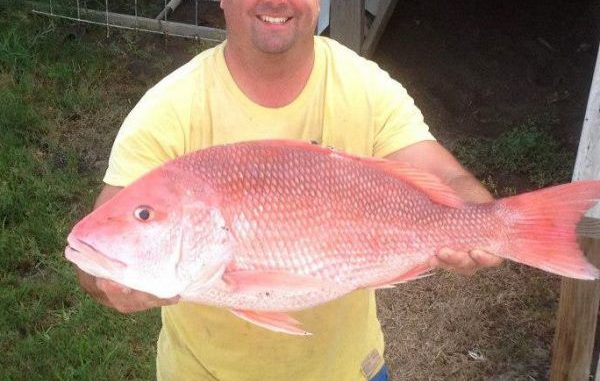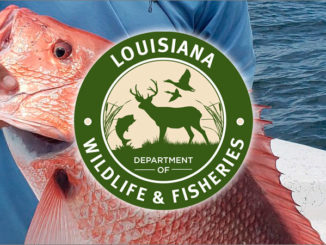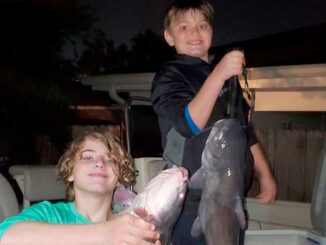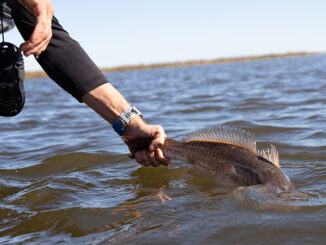
Proposed legislation comes in reaction to federal contention that species is being overfished.
The drive by a state senator to outlaw the possession of Gulf red snapper for recreational and commercial fishermen, as well as everyone else in Louisiana, cleared its first hurdle Wednesday, and the debate now swims to the full Senate for further consideration.
Sen. Bret Allain (R-Franklin) said if the federal government wants to shrink the size of the recreational season because the fishery is supposedly being overfished and is in trouble, then Louisiana should go ahead and shut the whole operation down.
Now that his Senate Bill 157 is moving, Allain said commercial interests and the Louisiana Restaurant Association, both of which oppose the legislation, “realize that I’m serious.”
Without opposition the Senate Natural Resources Committee approved the bill, which Allain said he would “park” if the U.S. commerce secretary would direct Dr. Roy E. Crabtree, regional administrator of the National Oceanic and Atmospheric Administration’s Fisheries Services, to testify before the Legislature.
Allain pushed a resolution through the process securing the backing of most of the Senate for the request, but he said federal officials declined.
NOAA is tasked with conducting scientifically-based fishery stock assessments, and it has slowly been reducing Louisiana’s recreational red snapper seasons, from 194 days in 2004 to just nine for 2013.
Louisiana and Texas have filed suit over the shortening of the seasons.
The Louisiana Department of Wildlife and Fisheries asked the Gulf of Mexico Fishery Management Council to allow the state to take over control of red snapper seasons, but the council rejected the move.
As a result, the state Wildlife and Fisheries Commission went non-compliant with federal regs and created its own Louisiana-only red snapper season this year, much like Texas.
Gov. Bobby Jindal and the governors of Texas, Mississippi and Florida have asked Congress to step in and allow regional management of the fishery.
Members of Congress are also pushing federal bills to grant Gulf states more regulatory authority.
Allain said his bill would give these parties “more arrows for their quivers.”
Specifically, his legislation would prohibit the “sale, possession, or importation of red snapper in the state or in the waters of the state.”
He added an amendment to the bill Wednesday that would give LDWF’s secretary the ability to reopen the season if the federal government adds more days to this year’s recreational season.
Harlon Pearce, a seafood processor and distributor from Kenner who sits on the Gulf of Mexico Fishery Management Council, said he expected the season to be expanded next month when new stock assessments are reviewed.
“There’s no doubt in my mind we’re going to get more recreational days out of that stock assessment,” he said.
But Pearce also helped introduce for the first time in this developing debate a dividing line between commercial and recreational interests.
He said Allain’s bill, if ultimately enacted, would hurt commercial “fishermen and their families.”
He said 25 percent to 35 percent of the landings for the region’s harvesting sector come in through Louisiana, particularly Leeville.
If Louisiana shuts down its commercial market for red snapper, business will simply boom elsewhere, he added.
“This fish will still be caught in Mississippi or somewhere else,” Pearce said.
He said the commercial sector has always stayed within its allocations, which have shrunk, albeit slightly, along with the recreational allotments.
“One of the reasons we’ve got a problem with the quota is the recreational sector overfished its harvest by 1.8 million pounds last year and by 1.5 million pounds the year before,” he said.
Pearce said he “can’t blame them,” though, since recreational anglers can only fish the days they are allowed and federal datum processing is way too slow.
On the horizon, he said a real-time system is being developed.
Allain refused to budge, saying no side is being singled out.
“I’m not trying to pick between recreational and commercial,” Allain said. “We’re doing it all.”
Stan Harris, president of the Louisiana Restaurant Association, said it could potentially impact tourism and restaurant sales.
“The wild-caught (snapper) is preferred. It’s why people come to our restaurants,” he said.
Allain said in an interview late Wednesday that he doesn’t want to keep people from fishing or doing business, but at some point the federal government needs to be held accountable for curbing a fishery he said is healthy and thriving.
“At the end of the day I promise I will do the right thing,” he said.


